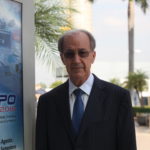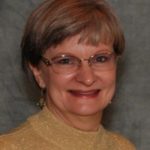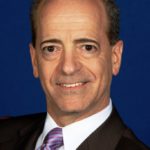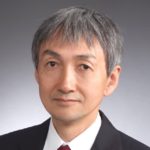Destiny and Evolution of TV

Destiny and Evolution of TV
Why is this happening? How to reverse this situation? What new technologies could help?
These questions run the world. In this panel/debate, experts from three continents will help us reflect on how to face the challenges that the new digital world brings to the traditional Broadcasting industry.
Chair: Fernando Bittencourt - International Director – SET
International Director – SET/ Consultant at FB Consultants Former General Manager for Engineering at TV Globo. Graduated in Electronic Engineering from the Federal University of Rio de Janeiro (UFRJ) Beginning in 1994, he was Coordinator of the SET/ABERT group created by the ABERT and SET to study and plan the implementation of Digital TV in Brazil. He was a full member of the Council for Social Communication in the Brazilian Senate, as an engineer with renowned knowledge in the field of social communication. Participates in the Deliberative Council of the Forum on the Brazilian Digital TV System. He is also a member of the IEEE, IBC and the SMPTE.

Speaker: Lisa Hobbs - Commercial Portfolio Strategy - Compression Solution Area Media - Ericsson
Lisa Hobbs joined Ericsson in 1997 after spending nine years in the satellite communications and video compression divisions of Scientific-Atlanta (now Cisco.) As Vice President, Compression Commercial Portfolio Strategy for Ericsson, she shares global responsibility for defining the direction of the compression portfolio across all of the market segments in which Ericsson has a presence, with a focus on market direction and ROI.

Speaker: Skip Pizzi - Vice President, Technology Education and Outreach (NAB)
Skip Pizzi is Vice President, Technology Education and Outreach, at the National Association of Broadcasters (NAB) in Washington, DC, USA. His career has spanned the broadcast and digital media industries, working in audio engineering at NPR, and in audio production, media standards and technical policy at Microsoft. He was also an editor at Broadcast Engineeringmagazine, and a columnist for several other international industry publications. He remains a technology journalist, editor, author and trainer today. His most recent book is A Broadcast Engineering Tutorial for Non-Engineers, 4th edition, published by Focal Press. He is currently Associate Editor on the NAB Engineering Handbook, 11th edition, which will be published later this year. Skip serves as Vice-Chair of the Advanced Television Standards Committee (ATSC) Technology Group 3 (TG3), which is developing the ATSC 3.0 standard. He is also a member of the Board of Directors of the Ultra HD Forum. Skip is a graduate of Georgetown University, where he studied Electrical Engineering, International Economics and Fine Arts.

Speaker: Masayuki Sugawara - President DiBEG ( Digital Broadcasting Expert Group)
Masayuki Sugawara received the B.S. and M.S. degrees in electric communication engineering and a Ph.D. degree in electronic engineering from Tohoku University, Sendai, Japan. He joined NHK in 1983. He researched solid-state image sensors, HDTV cameras, and the UHDTV system at NHK STRL from 1987 to 2015. He was an associate professor at the University of Electro- Communications, Tokyo, Japan, from 2000 to 2004. Since 2004, he has been involved in the standardization activity at ITU-R Study Group 6 including the UHDTV standard known as Recommendation BT.2020. At present, he is the chairman of digital broadcasting experts group (DiBEG) and an executive engineer at NEC Corporation. Dr. Sugawara is a SMPTE Fellow, a Senior Member of IEEE, and a member of IEICE, and ITE.

Speaker: Simon Fell -
Director of Technology & Innovation -
EBU
Simon Fell leads the team spearheading developments in media technologies at the EBU. He has four decades of experience, formerly with ITV as Director of Future Technologies; previously he helped establish Carlton Television where he held several executive positions and helped launch digital broadcasting. He has chaired the Technical Council at the UK’s Digital Television Group, and was Chairman of the HD Forum. Additional roles include Director of Engineering for Rushes, Chief Engineer of 625 and establishing Channel Four. His early career included periods in the USA with Rank Cintel and at YTV in Leeds.

